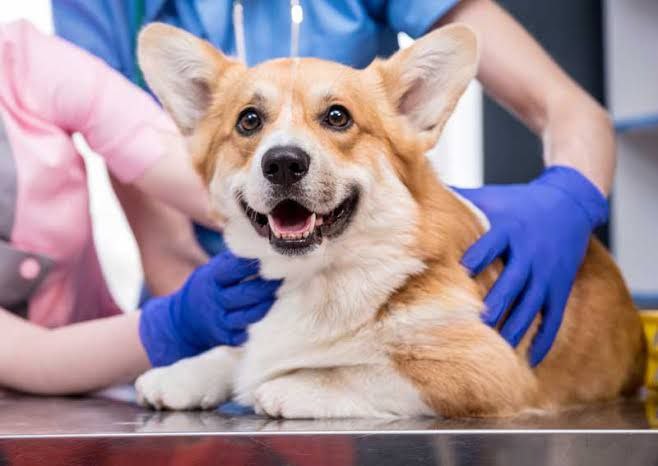pet assistance for low-income families
Pet Assistance for Low-Income Families: Support and Resources
Introduction: Pets bring immense joy and companionship to our lives, but the cost of pet care can sometimes be a challenge, especially for low-income families. Fortunately, there are various assistance programs and resources available to help ensure that pets receive the care they need, regardless of financial limitations. In this guide, we will explore different avenues of pet assistance, including financial aid, low-cost veterinary care, pet food banks, and other valuable resources, making it easier for low-income families to provide proper care for their beloved pets.pet assistance for low-income families
Financial Assistance Programs for Veterinary Care
- Nonprofit Organizations: Many nonprofit organizations, such as the Humane Society, offer financial assistance programs for low-income families. These programs can help cover veterinary expenses, including vaccinations, spaying/neutering, and emergency treatments. Contact local animal welfare organizations or search online for available options.
- Veterinary Schools: Veterinary schools often provide low-cost veterinary services as part of their educational programs. Students, supervised by experienced veterinarians, offer services at reduced rates. Reach out to veterinary schools in your area to inquire about their services and eligibility requirements.
- Charitable Funds: Some charitable funds specifically aim to help low-income families with veterinary expenses. These funds may offer grants or financial aid to cover medical treatments. Research and contact local animal charities or pet-focused foundations for more information.pet assistance for low-income families

Low-Cost Veterinary Clinics
- Spay/Neuter Clinics: Spaying or neutering your pet is essential for their health and population control. Many communities have low-cost or subsidized spay/neuter clinics that offer these services at a reduced rate. Contact local animal shelters or humane societies to find out about such clinics in your area.
- Community Clinics: Some communities organize periodic low-cost veterinary clinics where basic services like vaccinations, flea/tick prevention, and microchipping are offered at discounted prices. Stay informed about these events through local pet-related organizations, social media groups, or community bulletin boards.
- Mobile Veterinary Services: Mobile veterinary clinics or animal welfare organizations often provide affordable veterinary care directly to communities, particularly in underserved areas. These services can include vaccinations, check-ups, and basic treatments. Keep an eye out for mobile clinics scheduled in your area.pet assistance for low-income families
Pet Food Banks and Assistance Programs
- Pet Food Banks: Pet food banks and pantries aim to alleviate the financial burden of providing pet food. These organizations collect and distribute pet food to families in need. Locate pet food banks in your area by contacting local animal shelters, rescue organizations, or searching online directories.
- Community Outreach Programs: Some community outreach programs offer assistance with pet food and supplies. These programs may organize events or have designated locations where pet owners can access free or discounted pet food. Reach out to local social service agencies or animal advocacy groups for information on available programs.
Additional Resources and Support
- Pet Insurance: Consider investing in pet insurance, which can help cover unexpected veterinary costs. Research different insurance providers to find a policy that fits your budget and offers the coverage you need.pet assistance for low-income families
- Preventive Care: Regular preventive care, such as vaccinations, flea/tick prevention, and annual check-ups, can help minimize potential health issues and reduce long-term costs. Consult with a veterinarian about preventive care measures suitable for your pet.pet assistance for low-income families
- Education and Training: Proper training and behavioral education can prevent behavioral problems and improve the overall well-being of your pet. Look for local organizations that offer low-cost or free training classes or consult online resources for training tips and techniques.
- Online Pet Communities: Engage with online pet communities and forums where petpet assistance for low-income families

Additional Resources and Support
- Pet Foster Care Programs: In cases where temporary care is needed, pet foster care programs can provide a safe and nurturing environment for pets. These programs are often run by animal shelters or rescue organizations and can offer short-term care for pets whose owners are facing temporary financial difficulties. Contact local shelters or rescue groups to inquire about foster care options.pet assistance for low-income families
- Discounted Medications: Some pharmacies and online retailers offer discounted or generic medications for pets. Explore these options to find affordable medications for your pet’s needs. Additionally, consult with your veterinarian about cost-effective medication alternatives or prescription assistance programs.pet assistance for low-income families
- Social Media and Online Fundraising: Utilize social media platforms to raise awareness about your situation and seek assistance from friends, family, and pet-loving communities. Online fundraising platforms can also be used to gather financial support for your pet’s medical expenses or other essential needs.pet assistance for low-income families
- Local Government Programs: Check with your local government or animal control agencies to see if there are any pet assistance programs or subsidies available for low-income families. These programs may offer financial aid for spaying/neutering, vaccinations, or emergency veterinary care.pet assistance for low-income families
| Pet Assistance for Low-Income Families: Support and Resources | Information |
|---|---|
| Financial Assistance Programs for Veterinary Care | Nonprofit organizations, veterinary schools, and charitable funds offer financial aid for veterinary expenses. Contact local organizations and research available options.pet assistance for low-income families |
| Low-Cost Veterinary Clinics | Spay/neuter clinics, community clinics, and mobile veterinary services provide affordable veterinary care. Inquire with local animal shelters, humane societies, and community organizations.pet assistance for low-income families |
| Pet Food Banks and Assistance Programs | Pet food banks and community outreach programs offer free or discounted pet food. Contact local animal shelters, rescue organizations, or social service agencies for assistance.pet assistance for low-income families |
| Additional Resources and Support | Consider pet insurance, prioritize preventive care, explore discounted medications, utilize social media and online fundraising, inquire about local government programs, and seek support from pet foster care programs. Research and engage with relevant resources and organizations. |
| FAQs about Pet Assistance for Low-Income Families | Answers |
|---|---|
| Q1: Are there financial assistance programs available for low-income families to help with veterinary care expenses? | Yes, there are nonprofit organizations, veterinary schools, and charitable funds that offer financial aid for veterinary care. Contact local organizations and research available options.pet assistance for low-income families |
| Q2: Where can I find low-cost veterinary clinics for my pet? | Look for spay/neuter clinics, community clinics, and mobile veterinary services that provide affordable care. Inquire with local animal shelters, humane societies, and community organizations for information. |
| Q3: Are there pet food banks or assistance programs that provide free or discounted pet food? | Yes, there are pet food banks and community outreach programs that offer assistance. Contact local animal shelters, rescue organizations, or social service agencies to inquire about available programs. |
| Q4: What additional resources and support are available for low-income families with pets? | Consider options such as pet insurance, preventive care, discounted medications, social media and online fundraising, local government programs, and pet foster care programs. Research and engage with relevant resources and organizations for support.pet assistance for low-income families |
It’s important to reach out to specific organizations and resources for detailed information and to determine eligibility criteria. Each program may have its own requirements and availability.
Conclusion: Low-income families should not have to forgo the joy and companionship of a pet due to financial constraints. Various assistance programs and resources exist to help alleviate the financial burden associated with pet care. By taking advantage of financial assistance programs, low-cost veterinary services, pet food banks, and other resources, low-income families can provide their pets with the care they need while nurturing a loving and fulfilling relationship. Remember to reach out to local organizations, charities, and veterinary clinics to explore the available options in your community.
Read More:
